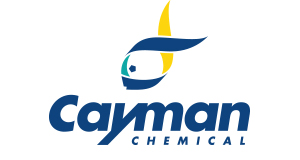BIBF 1120-13C-d3
BIBF 1120-13C-d3
SKU
CAY25312-500
Packaging Unit
500 µg
Manufacturer
Cayman Chemical
Availability:
loading...
Price is loading...
Shelf life (days): 1460.0
Formulation: A solid
Formal Name: methyl (Z)-3-(((4-(N-methyl-2-(4-(methyl-13C-d3)piperazin-1-yl)acetamido)phenyl)amino)(phenyl)methylene)-2-oxoindoline-6-carboxylate
Purity: ≥99% deuterated forms (d1-d3)
Formula Markup: C30[13C]H30D3N5O4
Formula Weight: 543.7
Notes: BIBF 1120-13C-d3 is intended for use as an internal standard for the quantification of BIBF 1120 (Item Nos. 11022 / 31082) by GC- or LC-MS. BIBF 1120 is an inhibitor of the receptor tyrosine kinases VEGFR, FGFR, and PDGFR (IC50s = 13-34, 37-610, 59, and 65 nM for VEGFR1-3, FGFR1-4, PDGFRα, and PDGFRβ, respectively).{20204} It is selective for VEGFR, FGFR, and PDGFR over a panel of 33 kinases but does inhibit FLT3, LCK, LYN, and Src (IC50s = 16-156 nM). BIBF 1120 inhibits growth factor-dependent proliferation of human umbilical vascular endothelial cells (HUVECs), human microvascular skin endothelial cells (HSMECs), human umbilical artery smooth muscle cells (HUASMCs), and bovine retinal pericytes (BRPs; EC50s = 7-290 nM). In vivo, BIBF 1120 (100 mg/kg) reduces tumor microvessel density and the number of PDGFRβ-expressing perivascular cells in a FaDu head and neck small cell carcinoma mouse xenograft model. It also inhibits tumor growth in a Caki-1 renal cancer mouse xenograft model. Formulations containing BIBF 1120 have been used in the treatment of idiopathic pulmonary fibrosis and non-small cell lung cancer (NSCLC).
Formulation: A solid
Formal Name: methyl (Z)-3-(((4-(N-methyl-2-(4-(methyl-13C-d3)piperazin-1-yl)acetamido)phenyl)amino)(phenyl)methylene)-2-oxoindoline-6-carboxylate
Purity: ≥99% deuterated forms (d1-d3)
Formula Markup: C30[13C]H30D3N5O4
Formula Weight: 543.7
Notes: BIBF 1120-13C-d3 is intended for use as an internal standard for the quantification of BIBF 1120 (Item Nos. 11022 / 31082) by GC- or LC-MS. BIBF 1120 is an inhibitor of the receptor tyrosine kinases VEGFR, FGFR, and PDGFR (IC50s = 13-34, 37-610, 59, and 65 nM for VEGFR1-3, FGFR1-4, PDGFRα, and PDGFRβ, respectively).{20204} It is selective for VEGFR, FGFR, and PDGFR over a panel of 33 kinases but does inhibit FLT3, LCK, LYN, and Src (IC50s = 16-156 nM). BIBF 1120 inhibits growth factor-dependent proliferation of human umbilical vascular endothelial cells (HUVECs), human microvascular skin endothelial cells (HSMECs), human umbilical artery smooth muscle cells (HUASMCs), and bovine retinal pericytes (BRPs; EC50s = 7-290 nM). In vivo, BIBF 1120 (100 mg/kg) reduces tumor microvessel density and the number of PDGFRβ-expressing perivascular cells in a FaDu head and neck small cell carcinoma mouse xenograft model. It also inhibits tumor growth in a Caki-1 renal cancer mouse xenograft model. Formulations containing BIBF 1120 have been used in the treatment of idiopathic pulmonary fibrosis and non-small cell lung cancer (NSCLC).

 Deutsch
Deutsch







